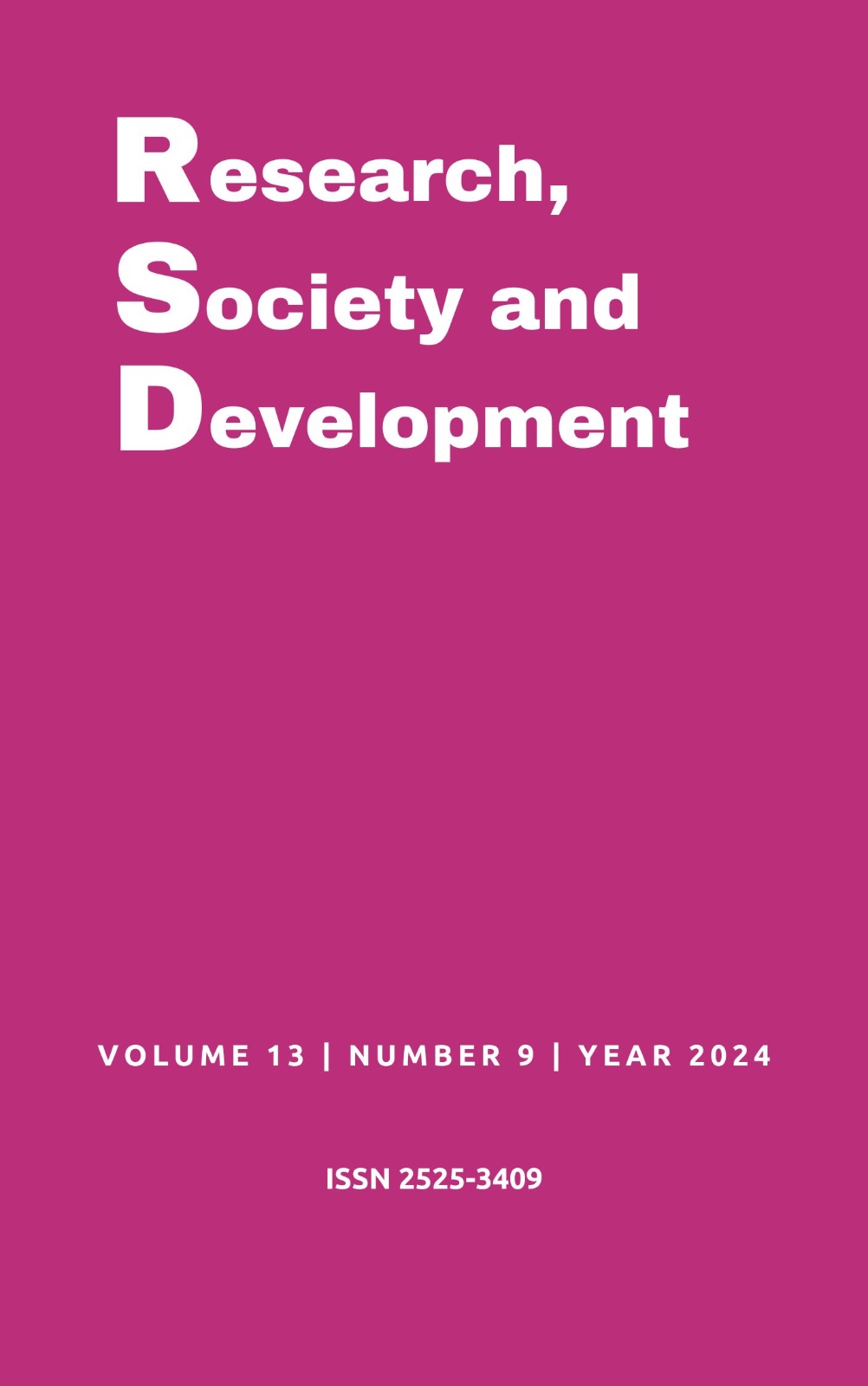La prevención primaria como estrategia para combatir la violencia en la Ruta Ecológica de los Milagros
DOI:
https://doi.org/10.33448/rsd-v13i9.46897Palabras clave:
Criminalidade, Violencia, Prevención primaria, Ruta Ecológica de los Milagros.Resumen
El turismo es una actividad socioeconómica compleja, susceptible a desafíos internos como la criminalidad y la violencia. En vista de esto, la prevención primaria surge como la forma más genuina y eficiente de abordar el fenómeno criminal, dirigida a toda la población. Se refiere a estrategias e intervenciones orientadas a eliminar o reducir las condiciones que favorecen la ocurrencia de actividades delictivas antes de que estas se manifiesten. En este contexto, el objetivo central de este estudio fue analizar los beneficios de la implementación de medidas de prevención primaria contra la violencia en la región de la Ruta Ecológica de los Milagros, en la costa norte de Alagoas. Para tal fin, se adoptó la investigación exploratoria y descriptiva como enfoque metodológico, a través de la revisión bibliográfica, así como la aplicación de formularios a militares y gestores municipales. Como resultado, se constató que la implementación efectiva de estrategias de prevención primaria de la violencia en la región de la Ruta Ecológica de los Milagros requiere el compromiso y la colaboración de todos los actores involucrados, incluidas las fuerzas de seguridad, los gestores municipales, las comunidades locales y el sector privado. Además, se identificó que al adoptar un enfoque integrado y basado en evidencia, es posible promover un ambiente seguro y acogedor que fomente el desarrollo socioeconómico sostenible y el bienestar de todas las personas que viven y visitan la región.
Referencias
Segundos. (2023). PM e prefeitos discutem segurança na rota ecológica dos milagres.
Barbosa, N. M. (2021). Litoral à vista: uma análise dos impactos da atividade turística na relação indivíduo-território na Rota Ecológica dos Milagres - AL (Dissertação de Mestrado). Universidade Federal de Sergipe, São Cristóvão, SE, Brasil.
Barroso, S. L. R. (2022). Impactos econômicos da crise COVID-19 no turismo: um estudo nas agências de viagens (Dissertação de Mestrado). Universidade Federal do Paraná, Setor de Ciências Humanas, Paraná, Brasil.
Booking. (2024). Pousada Zaya São Miguel dos Milagres. https://www.booking.com/hotel/br/pousada-zaya-sao-miguel-dos-milagres.
Borges, A. L. M. (2021). Turismo e percepção do medo: o impacto da violência urbana no uso dos espaços públicos de Natal/RN (Tese de Doutorado). Universidade Federal do Rio Grande do Norte, Centro de Ciências Sociais Aplicadas, Programa de Pós-Graduação em Turismo, Natal, RN, Brasil.
Brasil. Constituição (1988). Constituição da República Federativa do Brasil: promulgada em 5 de outubro de 1988 (2ª ed.). São Paulo: Editora Revista dos Tribunais.
Gil, A. C. (1999). Métodos e técnicas de pesquisa social (5ª ed.). Atlas.
IG Turismo. (2024). Destino dos Famosos: os encantos da Rota Ecológica dos Milagres. Disponível em: https://turismo.ig.com.br/destinos-nacionais/2024-02-07/destino-dos-famosos-rota-ecologica-dos-milagres-em-alagoas.html.
Kopittke, A. L. (2019). Segurança pública baseada em evidências: a revolução das evidências na prevenção à violência no Brasil e no mundo (Dissertação de Doutorado). Universidade Federal do Rio Grande do Sul, Porto Alegre, RS, Brasil.
Lage, B. H.; & Milone, P. C. (2001). Economia do turismo (7ª ed.). Atlas.
Loureiro, S. F. (2023). Gestão estratégica da segurança pública no contexto do turismo para uma especialização na Polícia de Segurança Pública (Trabalho individual final, Curso de Direção e Estratégia Policial). Instituto Superior de Ciências Policiais e Segurança Interna.
Ministério da Justiça e Segurança Pública [MJSP]. (2005). Guia para a Prevenção do Crime e da Violência.
https://www.gov.br/mj/pt-br/assuntos/sua-seguranca/seguranca-publica/Senasp-1/guiapreven__o2005.pdf.
Ministério da Justiça e Segurança Pública [MJSP]. (2018). Notícia: Implantado pela Lei nº 13.675/2018, sancionada em 11. https://www.justica.gov.br/news/collective-nitf-content-1544705396.44.
Molinas, A. G. P.; & Gomes, L. F. (2008). Criminologia: introdução a seus fundamentos teóricos; introdução às bases criminológicas da Lei 9.099/1995. São Paulo: Editora Revista dos Tribunais.
Nealdo, C. (2024). Maceió é o destino turístico mais buscado do Brasil em 2023. Gazeta de Alagoas.
Rosa, L. V. (2021). Impactos econômicos do turismo. Ministério do Turismo (MTUR), Universidade Federal Fluminense (UFF), Laboratório de Políticas Governança e Turismo (LabPGTUR). ISBN 978-65-84620-05-6.
Silva, J. S.; & Nascimento, E. L. (2022). Evolução da Criminologia: Prevenção Primária como Arma no Combate ao Crime. Revista FT, Ciências Humanas, Ciências Jurídicas, 26((115). ISSN 1678-0817.
Triola, M. F. (1999). Introdução à Estatística (7ª ed.). LTC.
United Nations [UNODC]. Prevenção ao Crime e Justiça Criminal: ações. https://www.unodc.org/lpo-brazil/pt/crime/acoes.html.
Descargas
Publicado
Número
Sección
Licencia
Derechos de autor 2024 André Luís Souza de Figueirôa

Esta obra está bajo una licencia internacional Creative Commons Atribución 4.0.
Los autores que publican en esta revista concuerdan con los siguientes términos:
1) Los autores mantienen los derechos de autor y conceden a la revista el derecho de primera publicación, con el trabajo simultáneamente licenciado bajo la Licencia Creative Commons Attribution que permite el compartir el trabajo con reconocimiento de la autoría y publicación inicial en esta revista.
2) Los autores tienen autorización para asumir contratos adicionales por separado, para distribución no exclusiva de la versión del trabajo publicada en esta revista (por ejemplo, publicar en repositorio institucional o como capítulo de libro), con reconocimiento de autoría y publicación inicial en esta revista.
3) Los autores tienen permiso y son estimulados a publicar y distribuir su trabajo en línea (por ejemplo, en repositorios institucionales o en su página personal) a cualquier punto antes o durante el proceso editorial, ya que esto puede generar cambios productivos, así como aumentar el impacto y la cita del trabajo publicado.


